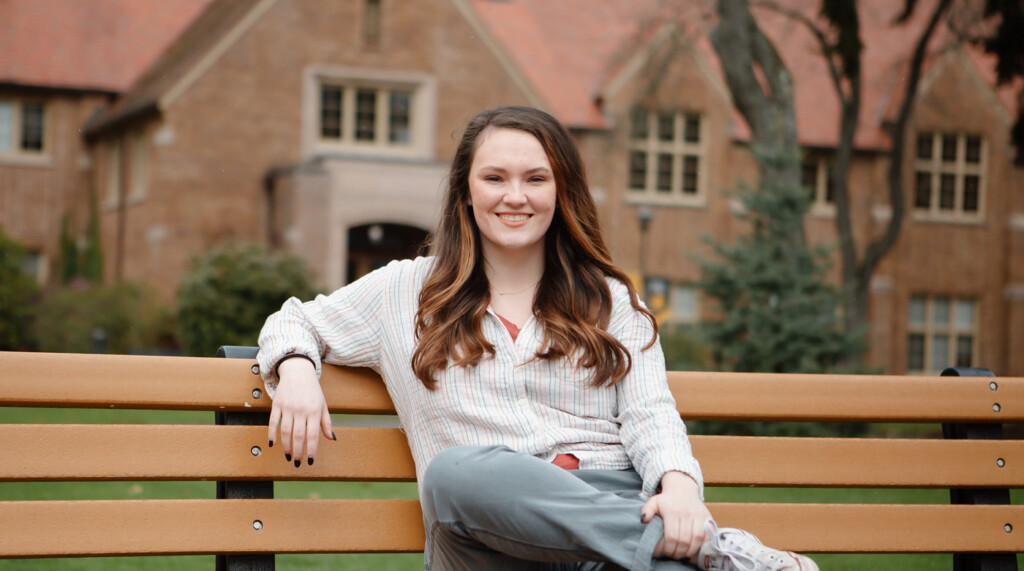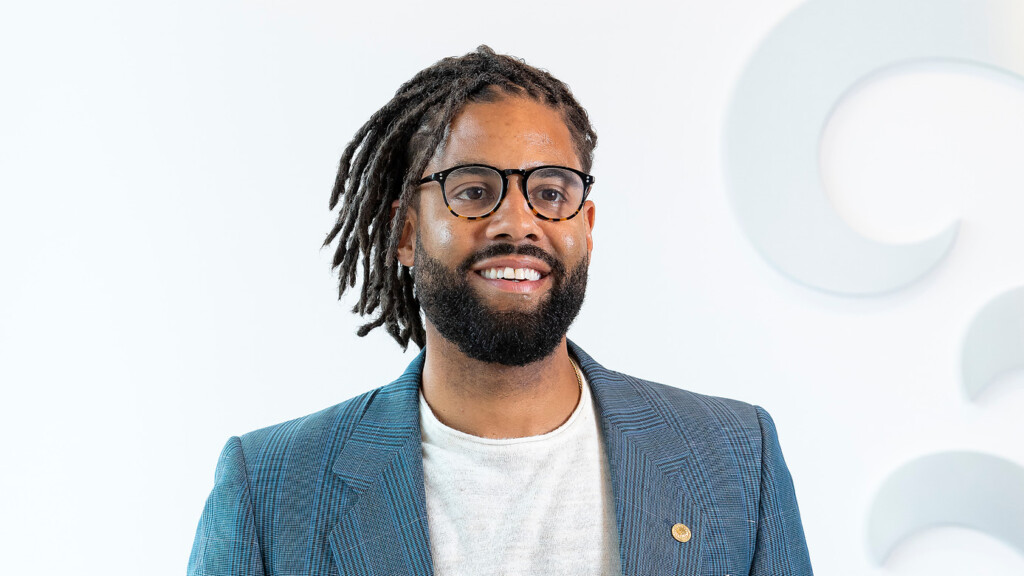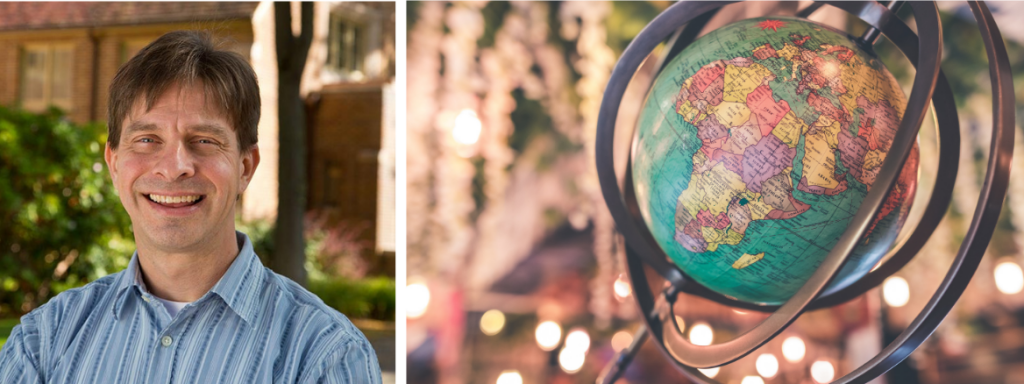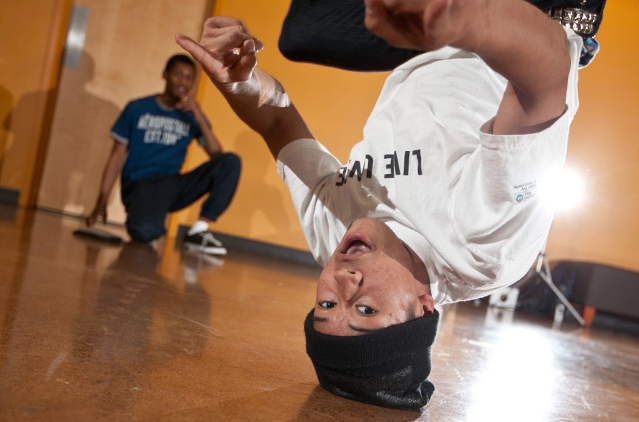Page 47 • (727 results in 0.029 seconds)
-

Hard work pays off. Networking is key. Relationships are everything. While this advice might sound cliché, people give it often, and for good reason. Just ask Pacific Lutheran University’s Keegan Dolan ’22. Dolan, a double major in philosophy and economics , is in the midst…
at whatever I do.” Dolan said his PLU classroom experiences have helped him in his internship, too. “Many of the basic concepts that we learn in our undergraduate economics classes are used in the work that we do at Analysis Group. In many ways, my experience at AG has bridged the gap between theory and practice; we consistently apply economic concepts to real-world problems,” Dolan said. His philosophy courses also have come into play. “All the reading and writing that I’ve done in my
-

Kara Atkinson ’23 earned an associate degree while serving as an Arabic linguist in the United States Army prior to her arrival at PLU. A history major with minors in religion and Holocaust and genocide studies , Atkinson’s passion for research, academia, and higher education…
there.What did you enjoy about collaborating and researching with Professors [Peter] Grosvenor and Hames? I really appreciate the international relations theory aspect that Dr. Grosvenor was able to provide, as he has been to Palestine. I was able to get feedback and more nuance from him. I don’t shy away from peer reviews, because they just make the paper stronger, having multiple sets of eyeballs on it. Dr. Hames assisted me in tailoring some of the writing, because this paper is what I used when
-

PLU graduate Aaron Bell ’04 learned early on that life is full of pathways — and that it was his responsibility to pursue his interests with passion to find his purpose. He grew up in Wisconsin where he was a standout student — an Eagle…
. “Oregon had a top-notch interdisciplinary philosophy program where I could study consciousness theory from a philosophy foundation.” His PLU mentors — Shore, Dana Anderson, and John Moritsugu — continued to help guide Bell and point to opportunities, like those he found at the University of Oregon. His time at Oregon was “one of the more selfish times of my life where I could just ask these questions that intrigued me so deeply, and really self-search and discover,” he said. Bell planned to try to
-

TACOMA, WASH. (June 27, 2019) — Dr. Jon Grahe’s reach extends around the globe as an open science ambassador. Nearly a decade ago, Dr. Grahe declared that he wanted to change how we study social science. Because of his tireless efforts, a new approach to…
may utilize the CREP for meta-analyses and their own research interests. As Dr. Grahe explains, “The advantages relate to both pedagogy and theory in psychology.” Dr. Jordan Wagge, who recently assumed the role of Executive Director of the CREP, described Dr. Grahe’s role in the open science movement as an advocate and educator. “He’s been a tremendous force behind open science and crowdsourcing. He is also a significant actor in getting journals to adopt badges for open science practices and many
-
Originally Published in 1990 It would appear that Louis XIV never said: “L’ état, c’est moi.” The researches of modern historians have produced no credible witness attesting that France’s Sun King pronounced this coldly witty laconism. But just try to find a modern history of…
stimulated more than defined further work in this field. A number of recently founded journals now specialize in addressing issues raised by the interpenetration of history and narrative, including New Literary History, Representations, Clio, and History and Theory. A “narrativist philosophy of history” (the phrase is F. B. Ankersmit’s) has thus constituted itself in the last quarter-century as a new school of interpretation in the field of philosophy of history. The situation has reached a point at
-

Isaiah Banken ’21 knew he wanted to pursue a career in medicine. Banken, with a B.S. in biology and a minor in mathematics from PLU, explored various medical opportunities near his hometown of Wenatchee, WA, including working at a ski resort, serving in hospice care,…
my passion for it that gets me back up every time. Read Previous PLU Psychology professor awarded $2.5M to lead implementation of evidence-based trauma treatment Read Next Award-winning science journalist, microbiologist, and author Bryn Nelson to speak at Rachel Carson Lecture LATEST POSTS Three students share how scholarships support them in their pursuit to make the world better than how they found it June 24, 2024 The Passing of Bryan Dorner June 4, 2024 Student athlete Vinny D’Onofrio ’24
-
Next of kin: the ethics of eating, capturing, and experimenting on great apes One of the pressing problems of our times is the future of the great apes. All of the great apes – chimpanzees, bonobos, gorillas and orangutans – are endangered. Their habitat is…
animals will be gone before their habitat is destroyed due to illegal and excessive hunting. Part of the problem is the human view of these nonhuman animals. Instead of being seen as beings valuable in their own right, they are seen as a resource for human needs and desires. Further evidence of this is found in the use of these same creatures, in captivity, for biomedical research and entertainment. As philosophers, we are examining the current crises faced by captive and free living apes. We are
-
Studying the laws behind international adoption Trained as an historian of the American Revolution and blessed with an abundance of sources, I saw no scholarly reason to travel abroad, although I had wanted to see England, the mother country from which America was born. My…
have a negative effect on birth mothers who had been promised secrecy by social workers at the time they had relinquished their babies. My earlier research was ambivalent on this issue, there not being sufficient evidence to support a conclusion, one way or another. But the paper I delivered in Sydney, based on new research in Great Britain and Australia as well as the United States, addressed this issue. My paper was the first one to test empirically how safe birth parents and adopted adults were
-

Anthony Chan Bounleurt – spinning on his head. (Photo by John Froschauer) There’s a faith club for that By Barbara Clements It could be any evening on the ground floor of the University Center: A group of young men and women – about 25 of…
PLU’s office of Campus Ministry. After a bunch of discussions, Alazadi and others around campus of various faiths created the Reflection Room, a place for students of all faiths – or those with no professed faith – to reflect and think. Brenda Ihssen, visiting assistant professor of religious history and historical theology, added that these clubs are evidence “that there is an open dialogue between the academic study of religion and the interest–and investment–that individuals have in their faith
-

By Sandy Deneau Dunham PLU Marketing & Communications TACOMA, WASH. (Jan. 26, 2015)—After World War II, government authorities removed thousands of American Indian children from their families and placed them in non-Indian foster or adoptive families. By the late 1960s, an estimated 25 to 35…
wondered if the United States had its own Stolen Generations. Had authorities forcibly removed American Indian children just as they had Aboriginal and Torres Strait Islander children in Australia?” They had. In its review of A Generation Removed, which it called a “nuanced, scholarly work … that calls for ‘a full historical reckoning’ of this devastating chapter in the treatment of Native Americans,” Kirkus Reviews said: “With no evidence of neglect required, the children were institutionalized
Do you have any feedback for us? If so, feel free to use our Feedback Form.


